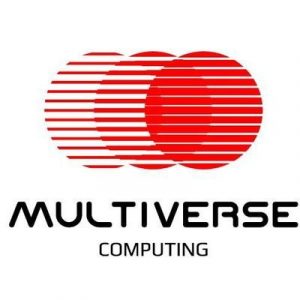SAN SEBASTIAN, SPAIN, March 17, 2023 — Multiverse Computing, a leader in quantum and quantum-inspired software, has announced its software is being leveraged by the IESE Business School in its Master in Management (MiM) program to demonstrate how quantum algorithms can solve problems more efficiently than classical algorithms.
 Singularity, the company’s quantum computing software as a service (qSaaS) platform, solves real challenges for large enterprises across all industries by allowing users to leverage quantum computing directly through Microsoft Excel. IESE used the software in a recent class at its Madrid campus with over 100 students who were able to demonstrate that quantum solutions can do a better job solving specific problems than previously proposed classical solutions. The add-in can be accessed via Excel through both Mac and Windows systems and requires no prior quantum computing knowledge. It is the first of its kind for solving real-world problems using quantum classifiers.
Singularity, the company’s quantum computing software as a service (qSaaS) platform, solves real challenges for large enterprises across all industries by allowing users to leverage quantum computing directly through Microsoft Excel. IESE used the software in a recent class at its Madrid campus with over 100 students who were able to demonstrate that quantum solutions can do a better job solving specific problems than previously proposed classical solutions. The add-in can be accessed via Excel through both Mac and Windows systems and requires no prior quantum computing knowledge. It is the first of its kind for solving real-world problems using quantum classifiers.
IESE is dedicated to inspiring leaders through global business programs and thought leadership based on relevant research. The institution has consistently been recognized as one of the top business schools in the world by major business publications. IESE has campuses in Madrid, Barcelona, Munich, New York and Sao Paulo and an extensive network of associated schools worldwide in Europe, America, Asia and Africa.
“Multiverse Computing’s tools allowed students to see the power of this emerging technology without needing any prior quantum experience,” commented Roberto García-Castro, professor at IESE Business School.
“IESE is one of the first business schools to add quantum computing in the classroom using Multiverse’s technology,” said Roberto García-Castro, professor and Head of the Managerial Decision Sciences Department at IESE Business School. “Our students were thrilled to learn how quantum computing can more effectively solve prediction problems. Multiverse Computing’s tools allowed students to see the power of this emerging technology during a standard 75 minutes IESE session without needing any prior quantum experience. We look forward to incorporating the software in future classes.”
The classroom problem focused on the global financial crisis of 2008, which forced financial institutions to increase the rigor of its banking practices. As the availability of credit became limited, banks tightened their lending systems and needed to anticipate risky loans more accurately. Data science teams were created to assess whether clients could repay their loans within the stipulated time.
In class, the IESE students formulated the challenge as a machine learning problem and proposed a classification algorithm that considered the default status of the client based on characteristics such as a client’s checking balance and work status as well as the loan amount and duration, among other factors. This use case is an inherently complex problem due to the multiple factors at play. Using the proposed classical machine learning algorithm, the students were able to correctly forecast 74% of all loan defaults.
Using Multiverse Computing’s Singularity Excel add-in, the IESE students were able to solve the same problem using a quantum machine learning algorithm on a D-Wave quantum machine with 54 active qubits. During the in-class demo, students achieved an accuracy of 78%. Using larger datasets and additional Multiverse Computing’s algorithms, accuracy can reach about 90% in some cases.
Even in those cases where the quantum algorithm is less accurate than traditional ones, there is another hidden advantage: quantum algorithms only require a very small fraction of the energy consumed by classical computers to solve complex problems. In the current context of energy restrictions worldwide, this crucial advantage might prove to be the key feature that will accelerate the quantum revolution.
“Singularity was designed for anyone to harness the power of quantum computing and we are proud to see it in action,” said Enrique Lizaso, CEO of Multiverse Computing, and an IESE Business School graduate. “IESE is pioneering the use of quantum technology in the classroom, and we look forward to more educational institutions following in its footsteps.”
About IESE Business School
IESE is the graduate business school of the University of Navarra. It is one of the world’s most international business schools, with campuses in Barcelona, Madrid, Munich, New York and São Paulo, and programs offered throughout Europe, Africa, Asia and the Americas. For more than 60 years, IESE has been at the forefront of management education and leadership development. It has done this through offering transformational educational experiences to more than 50,000 entrepreneurs and executives. IESE´s mission today remains the same as it was back in 1958: to educate and inspire leaders who wish to have a positive and lasting impact on people, business and society.
About Multiverse Computing
Multiverse Computing is a leading quantum software company that applies quantum and quantum-inspired solutions to tackle complex problems in finance to deliver value today and enable a more resilient and prosperous economy. The company’s expertise in quantum algorithms and quantum-inspired algorithms means it can secure maximum results from current quantum devices as well as classical high performance computers. Its flagship product, Singularity, allows professionals across all industries to leverage quantum computing with common software tools. The company also serves companies in the mobility, energy, life sciences and industry 4.0 sectors.
Source: Multiverse Computing




























































